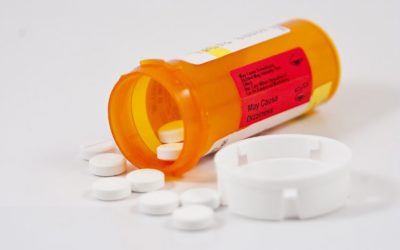Sore or scratchy throat caused by inflammation of the back of the throat is known as pharyngitis. It is one of the most common conditions encountered in outpatient clinics. Most cases of pharyngitis are caused by respiratory viruses and don’t require treatment. However, some cases may be caused by bacteria, called bacterial pharyngitis. Bacterial pharyngitis is different from viral because it is treated with antibiotics rather than no treatment as with viral causes. However, the symptoms of a viral pharyngitis and bacterial pharyngitis are often similar, and it may be hard to tell the difference without testing.
Strep throat is another name for the bacterial pharyngitis most often caused by a bacteria called Streptococcus pyogenes, also known as Group A Strep. Doctors can differentiate between strep throat and viral pharyngitis by testing for the presence of group A Strep. If you are worried that you may have strep throat, visit your doctor.
How is Strep Throat Spread?
There are several ways strep throat can be spread from person to person such as:
- Drinking after someone with strep throat
- Droplets spread by coughing or sneezing
- Touching surfaces
- Touching sores caused by strep throat
Streptococcus bacteria live in the nose and throat, so any exposure to people coughing, sneezing, or breathing directly on you may cause you to get strep throat.
Some of the best ways to tell the difference between a sore throat and strep throat are that with strep throat you may experience:
- Fever
- Pain
- Sore throat that came on quickly
- Red throat and tonsils
- Swollen throat and tonsils
- Swollen lymph nodes in your neck
- Blistering in the throat
- White patches on the tonsils
The best way to determine if you have strep throat is to visit your doctor and receive a strep test.
While rare, Some people may experience severe complications from strep throat when the bacteria travel to other parts of the body. These may include:
- Sinus infections
- Ear infections
- Abscesses on and around tonsils
- Post-streptococcal glomerulonephritis
- Rheumatic fever
What Is The Best Prescription For Strep Throat?
After visiting your doctor and receiving a positive strep test result, doctors will prescribe an antibiotic. The most prescribed antibiotics for strep throat are penicillin and amoxicillin because they kill the bacteria that causes strep throat (group A strep), are safe, inexpensive, and help prevent the serious complication of rheumatic fever. If you have a penicillin allergy, talk to your doctor about a possible alternative. These drugs are taken orally for a set amount of days (usually about 10 days), will help reduce symptoms, and kill off the bacteria causing the infection. Antibiotics will also help prevent the spread to others by decreasing the amount of time a person is contagious.
Doctors may also prescribe over-the-counter medications such as pain relievers and fever reducers. These medications may include acetaminophen or ibuprofen. These will help give you relief from the other mild symptoms you may experience.
Always take prescription medications as directed by your doctor or pharmacist, and never take over-the-counter medications for prolonged periods of time without supervision from a healthcare provider.
Home Remedies to Soothe Strep Throat
While home remedies will not treat strep throat and a doctor’s visit is still necessary, there are things that you can do to help relieve the symptoms of strep throat right at home.
Use Honey:
You can add honey to hot tea, warm water, or by taking a teaspoon of honey. Honey can help soothe the throat.
Drink Lots of water:
Staying hydrated will help soothe your sore throat and keep your throat lubricated to ease swallowing.
Eat Soft Foods:
Eating foods such as mashed potatoes, broth, ice cream, and soup will help prevent further irritating your throat and tonsils.
Rest:
Being rested will allow your body to fight off infections.
Prevent the Spread:
To decrease the spread of strep throat, stay home and wash your hands. Strep throat is spread through contact with others who have it, so coming into contact with someone if you know they have strep throat. There is no vaccine available to prevent against strep throat.
Prescriptions At A Discount
After visiting your doctor and being prescribed medications, use Easy Drug Card to get up to 80% discount on your prescriptions. Visit our website to receive your free, ready-to-use discount prescription drug card!
References:
https://www.mayoclinic.org/diseases-conditions/strep-throat/diagnosis-treatment/drc-20350344
https://www.cdc.gov/groupastrep/diseases-public/strep-throat.html












